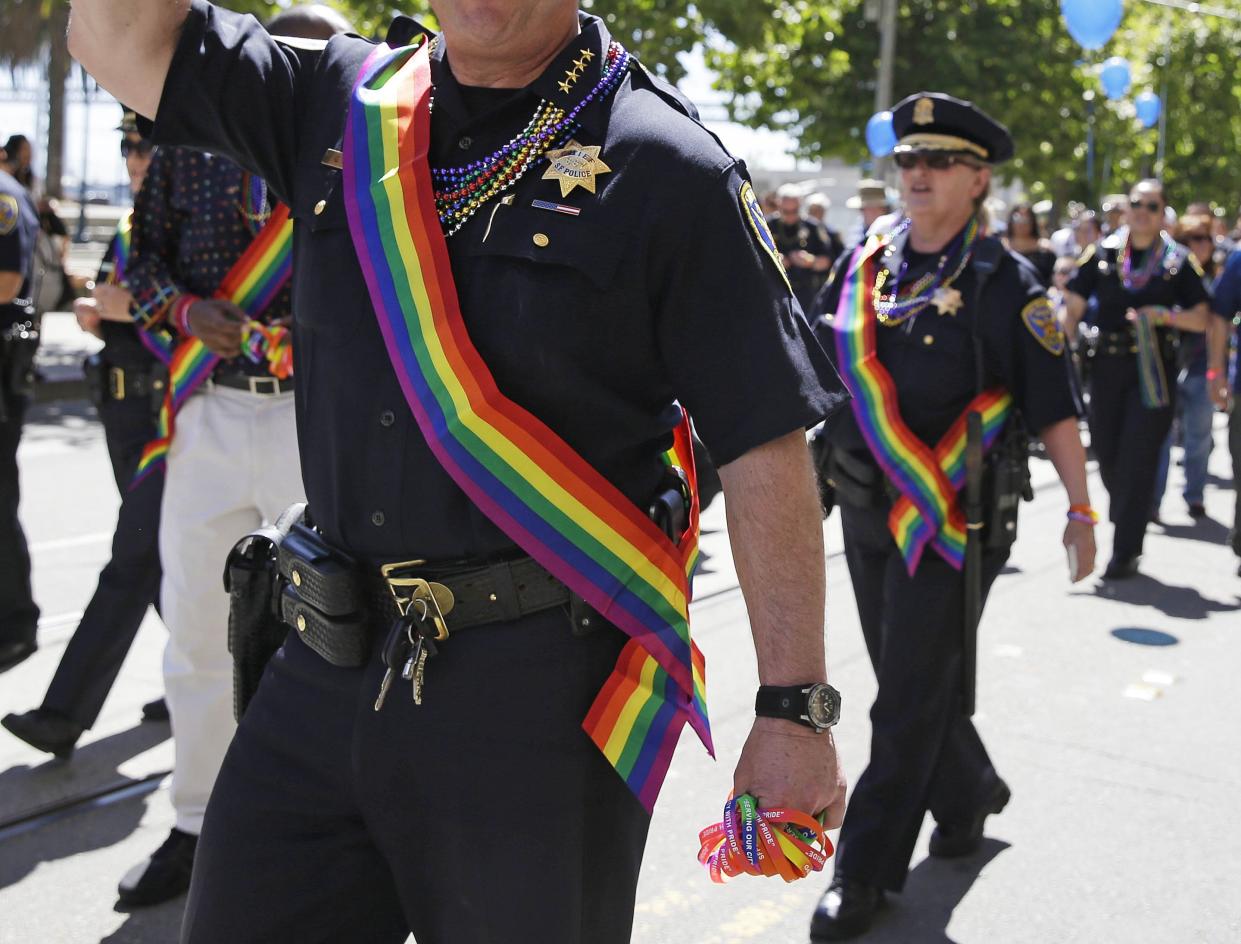San Francisco mayor won’t march in this year’s LGBTQ Pride parade, joins city’s first responders in protest against ban on police uniforms
San Francisco’s LGBTQ first responders said Monday morning that they will not march in this year’s Pride parade, in response to a decision by organizers of the event to ban uniformed police officers from participating in the annual celebration.
“The San Francisco Pride Committee has asked the LGBTQ+ peace officers to go back in the closet,” a group representing LGBTQ police officers, as well as sheriff’s deputies and firefighters, said Monday in a joint statement. “The LGBTQ+ members of San Francisco’s public safety agencies believe that radical inclusivity is a core San Francisco value and are asking that SF Pride reverse its decision.”
Mayor London Breed later announced in a statement that she will also skip this year’s Pride celebrations, in solidarity with the city’s first responders.
“I’ve made this very hard decision in order to support those members of the LGBTQ community who serve in uniform, in our Police Department and Sheriff’s Department, who have been told they cannot march in uniform and in support of the members of the Fire Department who are refusing to march out of solidarity with their public safety partners,” Breed said, according to the San Francisco Chronicle.
The decision came in early September 2020, when the board of the organizers announced that uniformed police officers would be banned from marching in the city’s parade. The group “concluded that in 2021 we cannot welcome the participation of the San Francisco Police Department’s Pride Alliance — which is to say, uniformed SFPD officers marching as a Parade contingent,” SF Pride board President Carolyn Wysinger said in a statement at the time.

San Francisco police take part in the 44th annual Gay Pride parade Sunday, June 29, 2014, in San Francisco. (Eric Risberg/)
Since in-person celebrations were not held last year, due to COVID-19 concerns, the celebration taking place on June 26 this year will be the first time when officers, while wearing uniforms, will not be able to march.
The San Francisco Police Officers Pride Alliance said that over the past 18 months, “members engaged in conversations with the board of SF Pride in response to the ban on uniformed police officers,” and shared “stories of the courage it took to serve as both a peace officer and a member of the LGBTQ+ community,” the group said.
However, SF Pride only offered them one option: “that LGBTQ+ peace officers hang up their uniforms, put them back in the closet, and march in civilian attire.”
Across the country, the relationship between law enforcement and members of the LGBTQ community has been historically volatile.
In New York City, for example, a series of violent confrontations between the NYPD and patrons of a gay bar in 1969, the Stonewall Inn, ushered in a new era in the fight for LGBTQ rights. Last year, the organization behind the city’s Pride celebrations announced that law enforcement officers were banned from participating in NYC Pride events until at least 2025.
Peace officers in San Francisco acknowledged that “issues of police hostility are complex, and the modern LGBTQ+ movement was born out of response to police hostility in places like the [San Francisco’s] Compton Cafeteria and the Stonewall Inn,” they said. But that’s why many LGBTQ officers decided to work as peace officers. “We recognized the need for change within these organizations, and much of the time, we have been those agents of change,” the group said.
